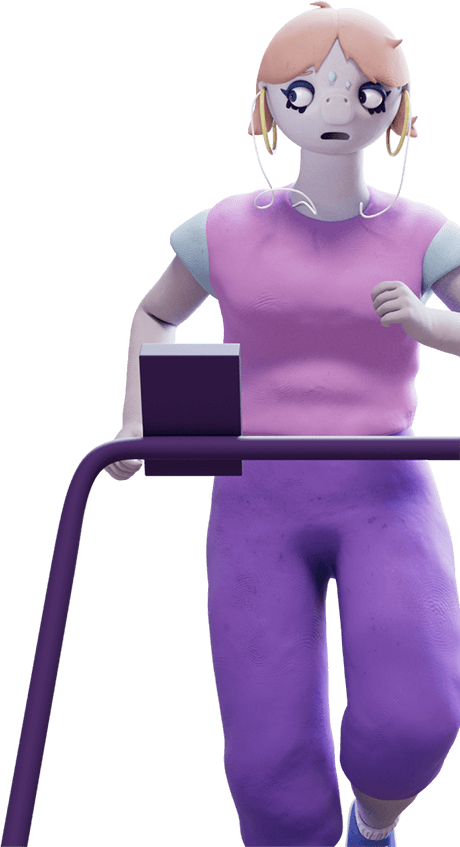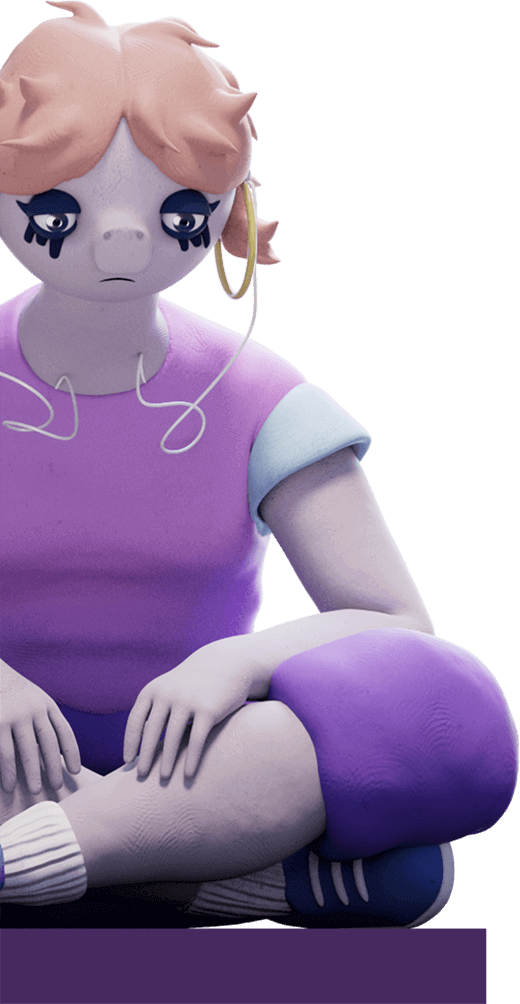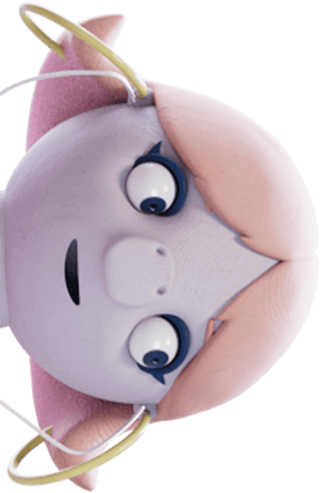Competitiveness
“Whatever I’m doing, I feel like I have to be the best. I have to win!”
I mean, we’re told it’s good to be competitive, right? How else would anything get done? But I’m starting to think that for me it’s getting a bit out of hand. I feel like whatever I’m doing, I have to be the best at it! If I’m not the best, or the fastest, or the funniest at something it starts to eat me up… I was making a cake with my best friend and got really angry when her’s was better! I think it’s affecting my friendships, happiness and enjoyment of life. What’s up with me?
Tai

What’s the issue?
We hear the word “competitive” everywhere. My sister is competitive. My teammate is competitive. My classmate is competitive. "Life's competitive". But what does it really mean? And does it have to be like that?
Competitiveness has different types. The first one is probably what many of us think of when we hear the word – it’s the tendency to compete with someone else. Just like Tai, you may compete with another person in a gym for how fast you can run. You may compete with your friends for how amazing you look. You may compete with classmates or among work colleagues for how smart you are.
The second one is a little bit less obvious – it’s the tendency to compete with yourself. You compete with your running time from yesterday. You compete with your grades from the last term. You compete with your presentation skills from last year. Your focus is on you, and no one else. This version of competition can be healthy, as long as it doesn’t drive perfectionism, or make you stressed.



I only wanted to be healthier. Why did I have to get competitive?
How does it affect me?
Competition is everywhere now in life. Much more than it used to be. All sorts of activities have become competitive which used to just be fun, or relaxing, or part of everyday life. Take a moment to think about the competitions you hear about every day - cooking, baking cakes, pottery, photography, even putting on make up and dating!
It can be hard not to get pulled into a competitive mindset when it’s all around you, but if you don’t stop and reflect on it, and how it may be affecting you, it could ending up making you pretty stressed.
So, is being competitive good or bad?… well, it depends. Competition can be good and bad so you’ll need to keep an eye on it!
Competitiveness can be problematic when someone is overcompetitive. For someone who is overcompetitive, winning is all that counts. Such people have a very strong urge to win at all costs because being a ‘winner’ is a big part of who they are. It can define them.
They may use unfair strategies to win, because they actually have low self-esteem, a lot of self-doubt, high aggression, anxiety and potentially other negative feelings, but they ‘need’ to win. It doesn’t sound very healthy, does it? Most people are not like this, but competitiveness can still stress them out, or interfere with their enjoyment of life.
How about other types of competitiveness? Are they all bad?
Being competitive with someone else is okay as long as it’s not causing you emotional distress. By competing with your friends, classmates, or teammates, you may run faster, increase your motivation, study more, and work harder toward your goals.
There can be positive types of competitiveness. Competing with yourself, focusing on your personal development, can be a good thing, as long as you are kind to yourself and not overly critical. You may still be in “competition” with someone else but your focus is not on others. Your focus is solely on yourself. You are motivated by your self-achievement and a desire to master the task. You try hard to do your best (not be the best) and improve your knowledge or skills during the process of competition. This can lead to higher self-esteem, self-development, self-discovery, and task enjoyment. Sounds amazing, doesn’t it? It’s all about balance.
But if competitiveness starts to take over your thoughts, makes you feel miserable or leads you to neglect other important things, like friendship, then it is a problem. It can lead to problems such as isolation and burnout too. It can also drive perfectionism, which can make you unhappy.


Ok. Time to get back on the treadmill for me, not to win!
What can I do to help myself?
We cannot avoid all competition, nor should we. So, what can we do to stay well and thrive in this increasingly competitive world? What can we do if we find ourselves to be competitive in an undesirable way? What can we do if our competitiveness is leading to feelings of inadequacy and burnout?
The key to staying well and healthy in this competitive world will be for you to find balance. To do some things competitively, and some just for fun. To say ‘no’ to competing in activities you don’t want to feel overly pressured about (painting, writing, baking, and so on).
And when you are happy to compete - just focus on doing your best, not being the best.
Enjoy the competition you choose to engage in
Enjoyment is key. When people enjoy the activity or competition, they tend to perform better. That’s because when we enjoy the activity, we focus attention on it. We are likely to be in ‘flow’ or in the zone. If you don’t enjoy a particular kind of competitive activity then it might be time to review whether this is something you wish to continue with.
Pause & reflect
Pause. Reflect. And ask “Is it really important?”. That’s the question we can ask ourselves when we are caught up in our unhealthy competitive self. Think about your priorities; is the number of “friends” on social media more important than your best friend sitting right next to you? Does your cake need to be the best? Could your fancy dress costume just be silly, not a winner? You may start to notice that some competitions are really important, but others… well, maybe not so much?
There are, of course, very important competitions. Even for those competitions, pause, reflect and check your competitiveness is not causing you emotional distress. If you find yourself feeling miserable because you are comparing yourself with someone else, go to the next step.
Focus on your personal development
It can be healthy to compete with yourself, even when you compete with other people if it leads to compassionate self-improvement. Wanting to be the best version of yourself is natural, but shouldn’t be exhausting. Try to focus on your personal development. How did you do in your exam this term compared with the last term? Do you run a little bit faster this month compared to last month? Has your singing improved since you joined a choir? You don’t always have to be better, but you also don’t have to compare yourself with others.
See a bigger picture
Try to see your personal development and progress in the longer term rather than in comparing what you did ‘this’ time compared to ‘last’ time. You may think “I studied more for the exam this time but did better last time” or “I prepared so much for this job interview, but it went even worse than last time.” But think about how you did, compared to, say, last year? How about comparing your skills or knowledge to before you started at your school, college, university, or workplace? How are you doing? Chances are that you have improved! Focus on the positives.
Be kind to yourself. Remind yourself of the things you are doing well!

When do I need to get help?
We have learned that some forms of competitiveness are normal, and even good, and that other kinds are not so good for us. There are some tactics that we can try ourselves if we choose to compete, like focusing on enjoying the competition, pausing and reflecting on the importance it has for us, looking to our personal development, and seeing a bigger picture. We can also choose not to compete, and to have fun, relax, and try new things.
But there may be times that these tactics just don’t work, or you may feel like you are so tired or feeling so down that you stop trying to work things through. You may be exhausted or feeling low from trying to be the best at everything. Okay, now it is time for you to share what is happening with other people you can trust.


Where to go for help?
If competitiveness causes you mental distress, then you should consider speaking to your doctor or someone you trust and seek advice from trained professionals.
More information can be found on our seeking help page.

